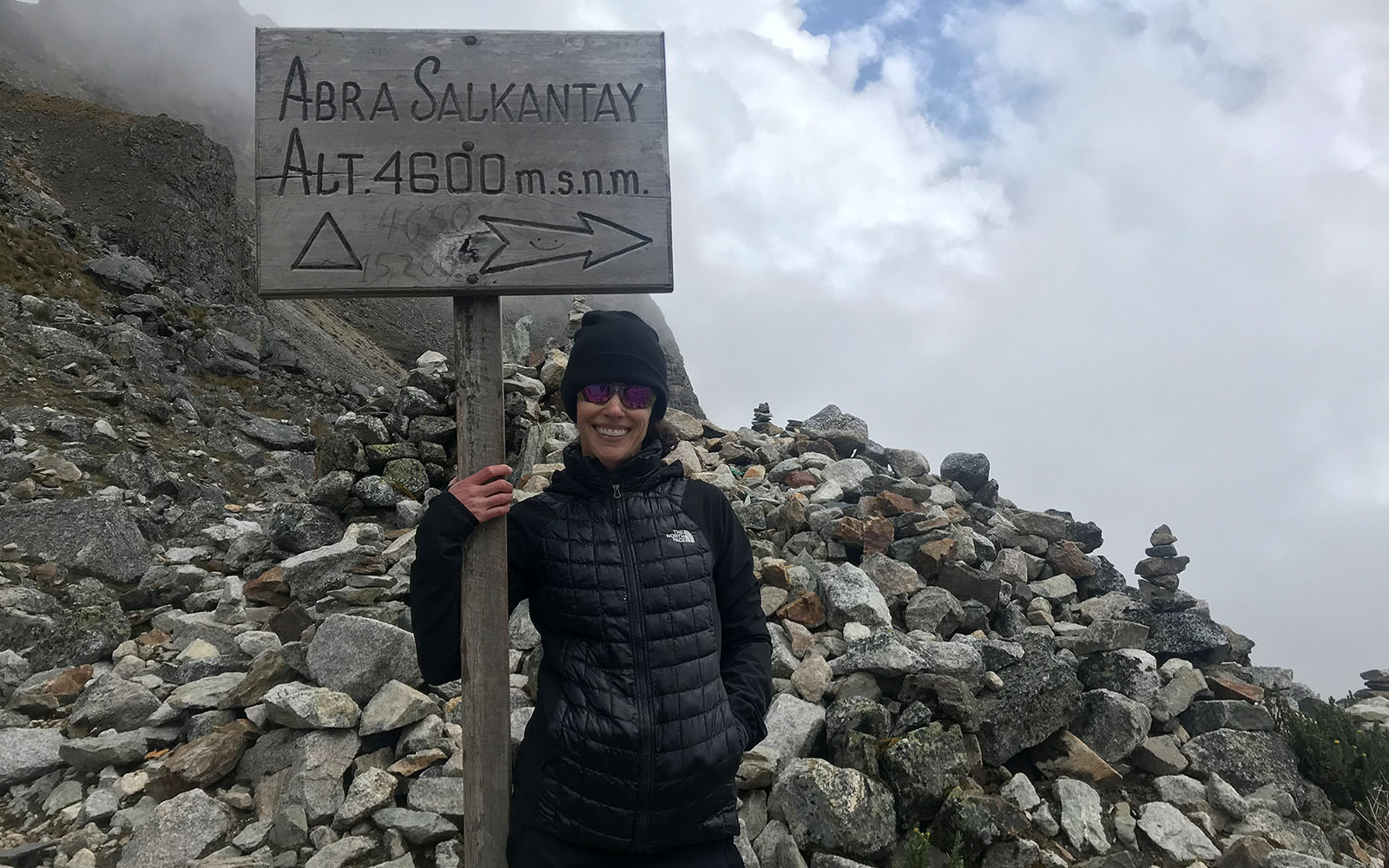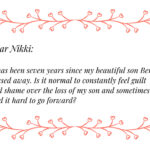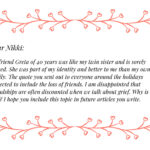Approximately seven months after my son passed away, I dreamt of a man in his 60s who was driving a white van and had short gray hair, unusually large teeth, and an exuberant smile. When he drove by me, he rolled down his window, smiled, and waved a cell phone the size of a brick. I stared at him, his white van and his ancient-looking phone for what seemed like multiple minutes, and the more I zoomed in on his face, the more he smiled and waved his massive phone at me.
The dream was so vivid that it woke me up. I promptly grabbed a journal next to my bed and wrote every detail down. Then I fell back asleep and forgot all about it, until a trip to Peru five months later jarred my memory.
My husband and I scheduled this trip after the first anniversary of my eldest son’s passing. I still could not feel the ground beneath my feet and knew this would be an extremely difficult time for our family. We agreed that a trek through the Andes mountains might help us get through it.
The trip was everything we hoped it would be – beautiful, friendly, and healing. But what I didn’t expect were the three doses of magic that awaited my arrival.
The first dose presented itself the morning we checked in for our group orientation and met our tour guide. I saw his short gray hair, bright smile, and big white teeth and immediately recognized him as the man in my dreams five months earlier.
Is it possible to have a dream about the future? I immediately asked myself. If it is, am I capable of doing that?
My questions were answered the very next morning when our guide pulled up in a white van with a walkie-talkie by his side.
As he drove us to the trailhead, I contemplated the relationship between my dreams in one world and my reality in another, and carried the possibilities with me to the country’s ancient hills.
When my boots hit the Peruvian soil, another dose of magic unexpectedly dropped in.
“I recently lost a son,” our guide confided in my husband and me. Suddenly, I was halfway around the world with a tour guide who was in my dreams five months earlier and had also lost a son that prior year.
“My son and I loved being outdoors together,” he disclosed. “That’s why I do this. I honor what we loved to do together the most and find peace in that.”
I absorbed his wisdom, committed to doing the same, and felt an immediate boost.
The following day, I started jamming like some sort of Wonder Woman. I found myself at the front of the pack wishing we could go faster, hoping the trail would get steeper, and wondering why I hadn’t even broken a sweat.
“What’s gotten into you?” my husband asked.
I had no idea. I was incredibly weak, indescribably thin, and hadn’t done cardio in a year. Still, while most of the group huffed and puffed and took multiple rest stops behind me, I nipped at the heels of our guide and nudged him to pick up the pace. It didn’t make any sense.
I thought harder about his question and found only one answer:
“Breathwork.”
“What?” he asked, unable to keep track of all my various healing modalities.
As part of my healing journey to heal a broken heart, I had been taking three or four breathwork classes a week. For thirty minutes straight, I breathed into my belly, up through my chest and out my mouth, over and over, while loud music played, and a motivational instructor gave prompts. Every breath forced my heart open and washed away gallons of tears that were clogging my head, chest, and throat and manifesting into physical ailments. On an emotional and spiritual level, I knew that the practice was helping me move through my grief, but I had never considered the possible benefits to my stamina and overall athletic performance until Peru.
“I’d like to try breathwork,” my husband responded, unable to deny the results standing in front of him.
Author James Nestor says in his book Breath that the way we breathe helps “distinguish good athletes from great ones.” Combining ancient practices and modern studies across psychology, biochemistry, human physiology, and pulmonology, Nestor says our breath impacts how a specific cluster of neurons at the base of our brain adjusts to carbon dioxide levels in our body, and that when we breathe correctly, these neurons become more “flexible” and learn to “withstand extreme fluctuations in carbon dioxide without panic.”
My neurons were so well-trained from breathwork that the altitude in Peru never made me wheeze. They were so flexible that it didn’t matter how strenuous our trek was, my body didn’t seem to notice. And these obscure neurons of mine, technically called chemoreceptors, were so used to adapting to different rhythms of airflow that instead of turning to pills and medication to manage my suffering and anxiety, I unknowingly learned to calm myself with my own breath.
Nestor suggests that before automatically diagnosing ourselves with mental illness associated with issues like anxiety and panic attacks, it would be a lot less expensive and far more prudent if we first tried learning how to breathe.
By the time we landed back in the States, I had changed.
My heart ached just a little bit less. My dreams at night flourished a little bit more. And with every breath in and every breath out, I could finally feel the ground beneath my feet.







Super motivated to look at that book for many reasons. I can’t believe you weren’t affected by the altitude! I got so sick from it and I was in a fog the whole time from cusco to machu picchu.
Do Breathwork we me online Mondays at 7…I will text you info….❤️